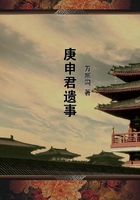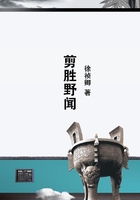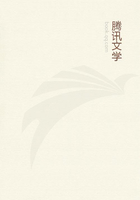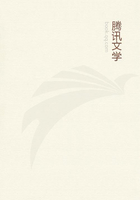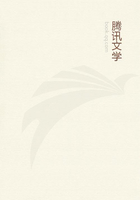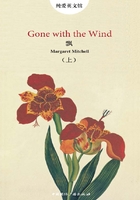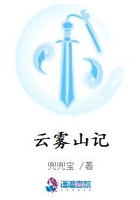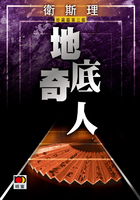8. He adds another Grecian fable, in order to reproach us. In reply to which, it would be enough to say, that they who presume to speak about Divine worship ought not to be ignorant of this plain truth, that it is a degree of less impurity to pass through temples, than to forge wicked calumnies of its priests. Now such men as he are more zealous to justify a sacrilegious king, than to write what is just and what is true about us, and about our temple; for when they are desirous of gratifying Antiochus, and of concealing that perfidiousness and sacrilege which he was guilty of, with regard to our nation, when he wanted money, they endeavor to disgrace us, and tell lies even relating to futurities. Apion becomes other men's prophet upon this occasion, and says that "Antiochus found in our temple a bed, and a man lying upon it, with a small table before him, full of dainties, from the [fishes of the] sea, and the fowls of the dry land; that this man was amazed at these dainties thus set before him; that he immediately adored the king, upon his coming in, as hoping that he would afford him all possible assistance; that he fell down upon his knees, and stretched out to him his right hand, and begged to be released; and that when the king bid him sit down, and tell him who he was, and why he dwelt there, and what was the meaning of those various sorts of food that were set before him the man made a lamentable complaint, and with sighs, and tears in his eyes, gave him this account of the distress he was in; and said that he was a Greek and that as he went over this province, in order to get his living, he was seized upon by foreigners, on a sudden, and brought to this temple, and shut up therein, and was seen by nobody, but was fattened by these curious provisions thus set before him; and that truly at the first such unexpected advantages seemed to him matter of great joy; that after a while, they brought a suspicion him, and at length astonishment, what their meaning should be; that at last he inquired of the servants that came to him and was by them informed that it was in order to the fulfilling a law of the Jews, which they must not tell him, that he was thus fed; and that they did the same at a set time every year: that they used to catch a Greek foreigner, and fat him thus up every year, and then lead him to a certain wood, and kill him, and sacrifice with their accustomed solemnities, and taste of his entrails, and take an oath upon this sacrificing a Greek, that they would ever be at enmity with the Greeks; and that then they threw the remaining parts of the miserable wretch into a certain pit." Apion adds further, that" the man said there were but a few days to come ere he was to be slain, and implored of Antiochus that, out of the reverence he bore to the Grecian gods, he would disappoint the snares the Jews laid for his blood, and would deliver him from the miseries with which he was encompassed." Now this is such a most tragical fable as is full of nothing but cruelty and impudence;yet does it not excuse Antiochus of his sacrilegious attempt, as those who write it in his vindication are willing to suppose;for he could not presume beforehand that he should meet with any such thing in coming to the temple, but must have found it unexpectedly. He was therefore still an impious person, that was given to unlawful pleasures, and had no regard to God in his actions. But [as for Apion], he hath done whatever his extravagant love of lying hath dictated to him, as it is most easy to discover by a consideration of his writings; for the difference of our laws is known not to regard the Grecians only, but they are principally opposite to the Egyptians, and to some other nations also for while it so falls out that men of all countries come sometimes and sojourn among us, how comes it about that we take an oath, and conspire only against the Grecians, and that by the effusion of their blood also? Or how is it possible that all the Jews should get together to these sacrifices, and the entrails of one man should be sufficient for so many thousands to taste of them, as Apion pretends? Or why did not the king carry this man, whosoever he was, and whatsoever was his name, (which is not set down in Apion's book,) with great pomp back into his own country? when he might thereby have been esteemed a religious person himself, and a mighty lover of the Greeks, and might thereby have procured himself great assistance from all men against that hatred the Jews bore to him. But I leave this matter; for the proper way of confuting fools is not to use bare words, but to appeal to the things themselves that make against them. Now, then, all such as ever saw the construction of our temple, of what nature it was, know well enough how the purity of it was never to be profaned; for it had four several courts (12) encompassed with cloisters round about, every one of which had by our law a peculiar degree of separation from the rest. Into the first court every body was allowed to go, even foreigners, and none but women, during their courses, were prohibited to pass through it; all the Jews went into the second court, as well as their wives, when they were free from all uncleanness;into the third court went in the Jewish men, when they were clean and purified; into the fourth went the priests, having on their sacerdotal garments; but for the most sacred place, none went in but the high priests, clothed in their peculiar garments. Now there is so great caution used about these offices of religion, that the priests are appointed to go into the temple but at certain hours; for in the morning, at the opening of the inner temple, those that are to officiate receive the sacrifices, as they do again at noon, till the doors are shut. Lastly, it is not so much as lawful to carry any vessel into the holy house; nor is there any thing therein, but the altar [of incense], the table [of shew-bread], the censer, and the candlestick, which are all written in the law; for there is nothing further there, nor are there any mysteries performed that may not be spoken of; nor is there any feasting within the place. For what I have now said is publicly known, and supported by the testimony of the whole people, and their operations are very manifest; for although there be four courses of the priests, and every one of them have above five thousand men in them, yet do they officiate on certain days only; and when those days are over, other priests succeed in the performance of their sacrifices, and assemble together at mid-day, and receive the keys of the temple, and the vessels by tale, without any thing relating to food or drink being carried into the temple; nay, we are not allowed to offer such things at the altar, excepting what is prepared for the sacrifices.
同类推荐
热门推荐
追妻无门:女boss不好惹
青涩蜕变,如今她是能独当一面的女boss,爱了冷泽聿七年,也同样花了七年时间去忘记他。以为是陌路,他突然向他表白,扬言要娶她,她只当他是脑子抽风,他的殷勤她也全都无视。他帮她查她父母的死因,赶走身边情敌,解释当初拒绝她的告别,和故意对她冷漠都是无奈之举。突然爆出她父母的死居然和冷家有丝毫联系,还莫名跳出个公爵未婚夫,扬言要与她履行婚约。峰回路转,破镜还能重圆吗? PS:我又开新文了,每逢假期必书荒,新文《有你的世界遇到爱》,喜欢我的文的朋友可以来看看,这是重生类现言,对这个题材感兴趣的一定要收藏起来。飘(上)(纯爱·英文馆)
《飘》是美国女作家玛格丽特·米切尔(1900—1949)十年磨一剑的作品,也是惟一的作品。小说以亚特兰大以及附近的一个种植园为故事场景,描绘了内战前后美国南方人的生活。作品刻画了那个时代的许多南方人的形象,占中心位置的斯佳丽、瑞德、艾希礼、梅勒妮等人是其中的典型代表。他们的习俗礼仪、言行举止、精神观念、政治态度,通过对斯佳丽与白瑞德的爱情纠缠为主线,成功地再现了林肯领导的南北战争,美国南方地区的社会生活。溺宠娇妻:老婆大人别闹
原本就是两个世界的人,互相带着刺,好不容易遇见了却都不知道珍惜,互相的伤害和永远欠缺的陪伴…结果倒好,钱越泽把苏贝人气跑了,苏贝这是心也凉了情也淡了。可是分开后感觉不是那么回事钱越泽充分发挥了自己军痞的不要脸精神,硬是死皮赖脸的贴上人家青春无限的苏贝。哎喂,钱越泽您这吨佛,您可是爷,您究竟还要不要你的大个face?人家苏贝可是铁了心的要离开,您老见好就收麻溜的回自己的地盘享清福去吧!地外文明:神奇的谜团(青少年科学探索营)
本书以科幻的视角,介绍了岩画记录的外星人、外星人曾在中国、回不了家的外星人、美国出现黑衣外星人、农民奇遇外星人、科西嘉岛上的外星人、地球人吃过外星人、外星人遗址、外星人与秦始皇、外星来客在东欧等内容。地底奇人(卫斯理珍藏版)
2006年珍藏版。一位奇异的盲者主导的一宗大买卖,导致一死一重伤的惨剧。破案的线索竟落在一隻纸摺的猴子上。一名神秘莫测的女郎突袭卫斯理,挑起他寻根问柢的本性。误打误撞下,卫斯理夜探巨宅,发现案件的玄机,就在一位隐世多年的奇人身上……《地底奇人》这个故事,是想写一些中国传统帮会中的奇人,结果,也还是只写成了一个传奇故事。这个故事有它的重要性,因为在这个故事中,引出了卫斯理故事中一个极其重要的人物:白素。

